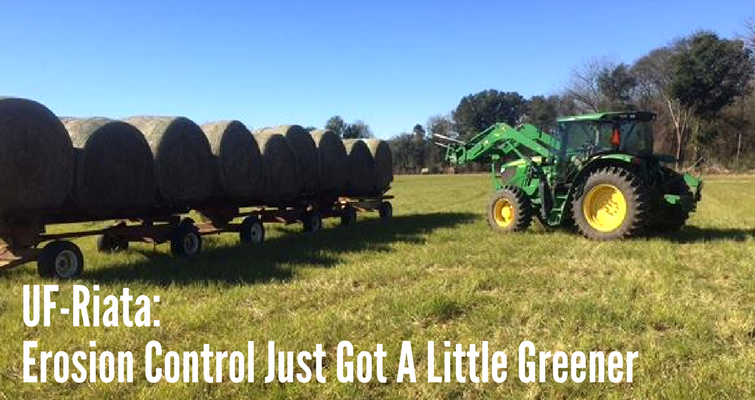
We often tout the foraging benefits of UF-Riata, a purebred diploid bahiagrass that is giving bermuda a run for its money. While it is true that UF-Riata is most commonly sown as a pasture grass, its deep root structure makes it ideal for another purpose: erosion control.
Since its introduction in 2008, this prolific seed producer is ideal for the poorly drained soils bermuda grass won’t touch. It also has a longer growing season, providing green early in the spring and well into the fall when most other warm seasons grasses have given up their chlorophyll. In fact, there are few soils UF-Riata isn’t plunging its roots into; once it is established, it forms a thick blanket of sod that firmly restrains hills, creek walls, and terraces.
Of course, we need our grasses to do more than just one thing, and there are many hilly, rocky, water-logged pasture areas that could benefit from both high-quality grazing as well as intensive erosion control. UF-Riata doesn’t mind a close grazing (although rotating when it gets between 2” and 6” will keep its nutritional quality high), and it has exceptional drought tolerance. It never hurts to fertilize established pasture areas, especially those with a lot of hoof traffic; like most bahiagrasses, however, UF-Riata doesn’t require a lot of attention to keep it maintained and thriving.
When you combine its pasture advantage with its erosion control and extended growing season, it’s easy to see why it’s one of our more popular choices for Southeast farmers.
“Anybody that depends on Pensacola or Argentine-type bahiagrass is going to like UF-Riata because of the extra grazing time,” Said Mike Massey, at the seed’s grand debut in 2008. “We think it has the potential to replace all of the Pensacola-type bahiagrass currently planted for forage.”
Learn more about what UF-Riata and our other pasture products can do for your pastures, your soils, and your herd.
